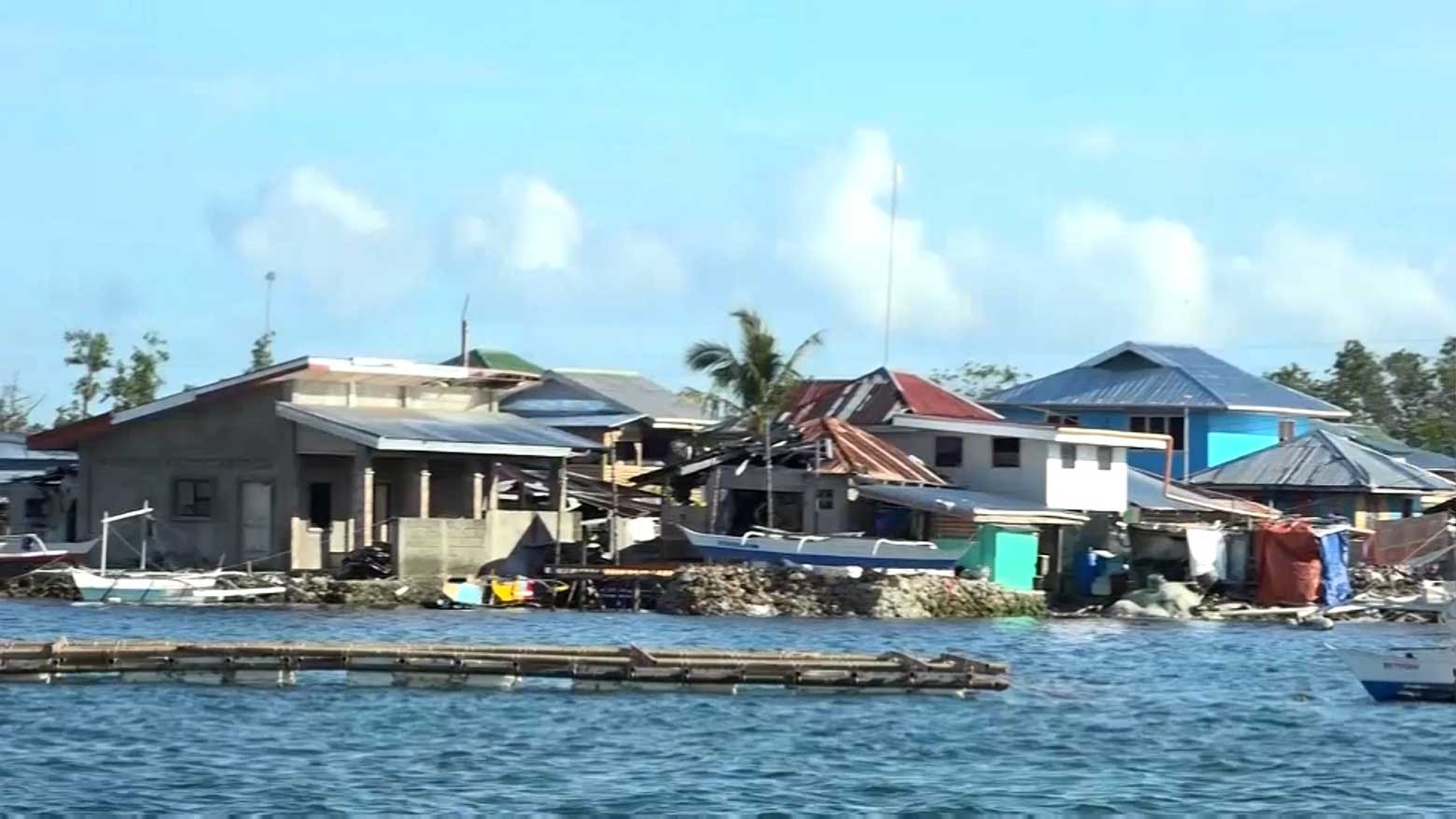Living with water
Seawater seeps into the home of Annie Casquejo every time there's a high tide. It enters through cracks in the floor created nearly a decade ago when a magnitude 7.2 earthquake struck the province of Bohol, and her island of Batasan. The quake also caused the land to subside, with Batasan sinking by around one meter.
"The water can make our table float," says Casquejo with frustration in her voice. In the months after the quake, she and her family would sleep on a mattress on the living room floor. That's no longer possible. Rising tides attributed to climate change mean the flooding is getting worse at an alarming rate.

"Two years after the quake, the seawater was up to my ankles," she says. Now it reaches her thighs.
In December 2021, she felt the wrath of nature once more when Typhoon Rai tore across the Philippines, dumping seawater and marine trash on Batasan. Countrywide, 400 people were killed and around half a million displaced.
Rising tides disrupt class
Children on Batasan now wade through murky water just to get to school.

Fifth grader Angelie Tesorio walks to school with her shoes in her hand.
"The water is high when I go to school, so I carry my shoes and when I reach the classroom, that's when I put them on," she says.
Marina Gabato has been teaching at Batasan Elementary School for two decades. She says class is disrupted every time the tide comes in.
"The water comes in and brings trash with it," she says. "None of us can concentrate on the lesson."
Bleak prospects on Batasan
Professor Fernando Siringan, a marine geologist, says the problem will only get worse, and the pace of change will even accelerate, in the coming years.
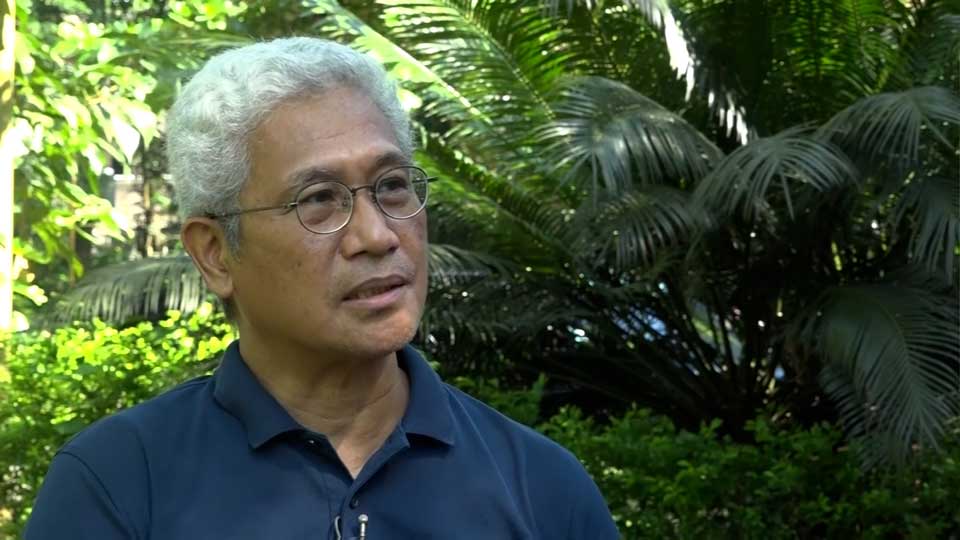
"The land…will continue to move down," he says. "Then you add, the land going down and sea level going up, that will result in faster sea level rise."
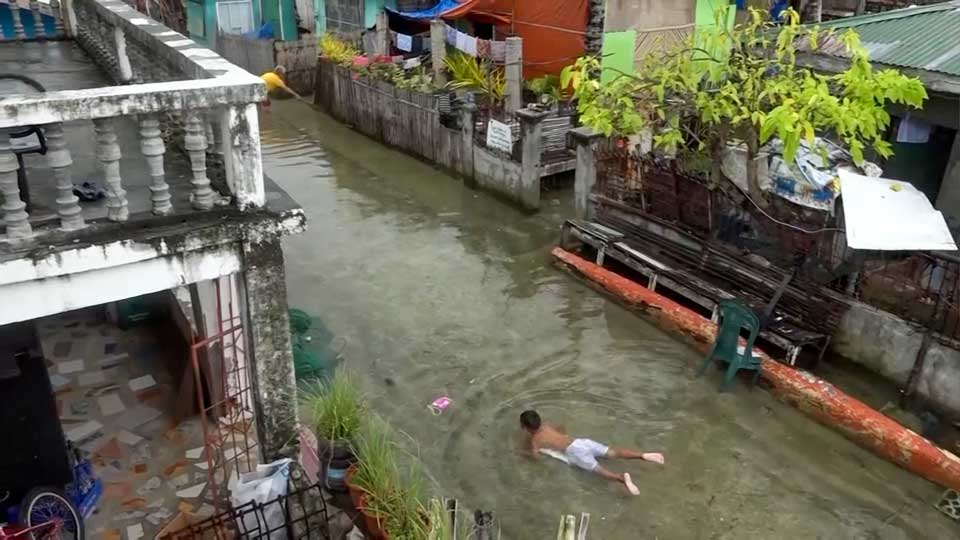
That's why authorities in Tubigon, the municipality to which Batasan belongs, are now urging the islanders to relocate to the mainland and are offering low-cost housing to anyone willing to make the move. But so far, only a few families have taken up the offer. Many are reluctant because they rely on the island for their livelihood.
"Unfortunately, the majority of them will not transfer because that's their way of living," says Junji Geronimo, an environmental official from Tubigon. He explains that most people on the island make their living from fishing.

"This is where we have our livelihood," says Casquejo, who was born and raised there. "We know that God will not abandon us because we have many sources of food here. We will only leave this place when the water reaches the roofs."
Mangrove plantation brings hope
On one side of Batasan, a 54-hectare mangrove plantation provides residents with resources. Casquejo says she believes the mangroves also protect them from the brunt of typhoons.
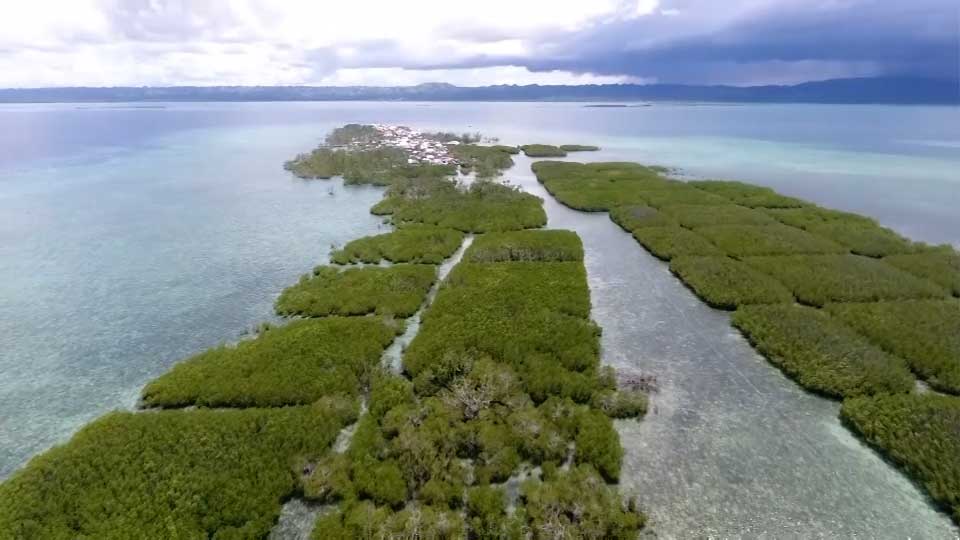
Geologist Siringan adds credence to this idea: "It has been shown in many places on several occasions that thick mangrove cover can indeed protect communities from the impacts of strong winds and waves."
Casquejo says she and the residents will protect the mangroves and is urging other coastal communities to plant them as well.
A plea to the emitters
But she also knows that only the largest economies, which emit the most greenhouse gases, have the power to make serious change, and she wants them to know what's happening to her island.
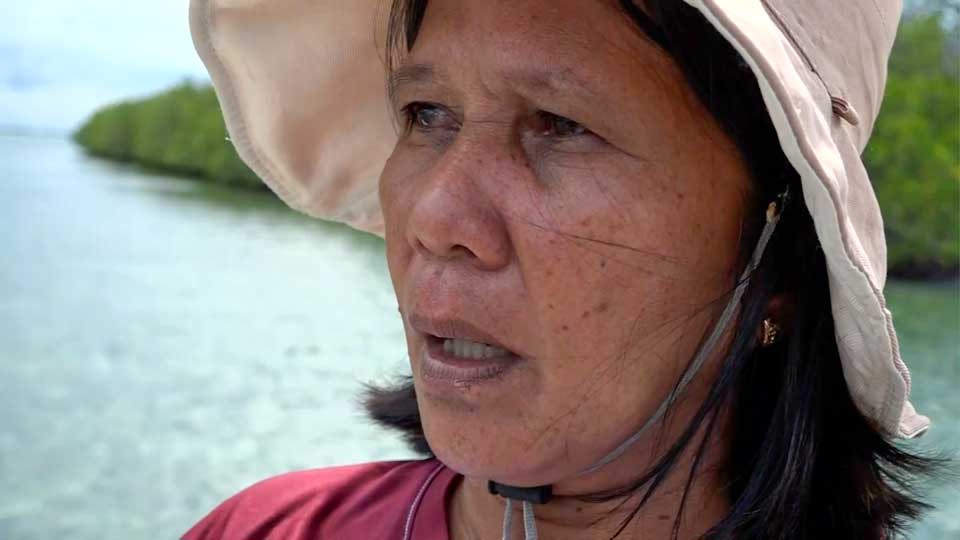
"It's unfair for the poor like us here in the Philippines, which is a small country, and to other small countries," she says. "We are the ones suffering from what they have been doing. So, my call for them is to have consideration or at least look at how we have suffered because of climate change, because of their excessive abuse of nature."
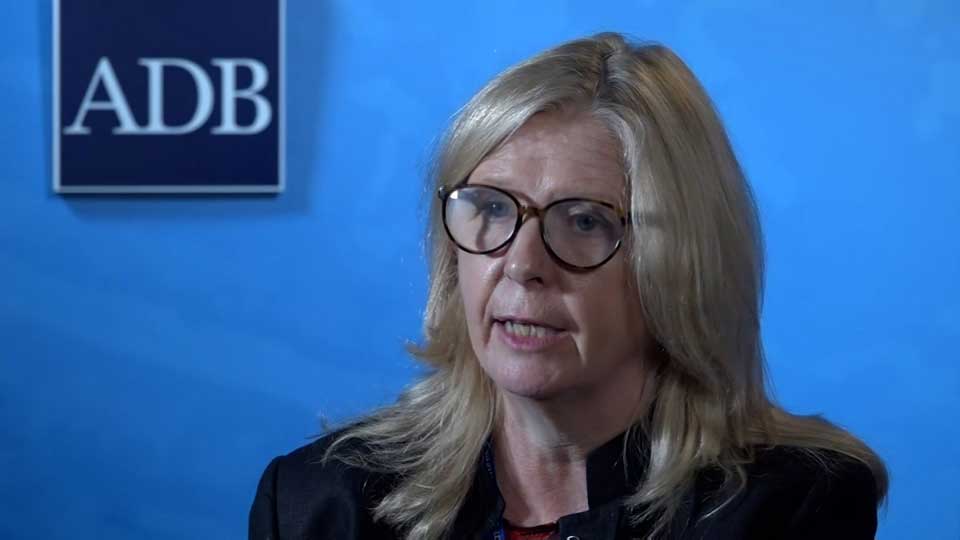
Noelle O'Brien, head of the Asian Development Bank's Climate Change and Disaster Risk Management Thematic Group, warns that unless things change, it won't just be Batasan residents who see their homes sinking. With scientists predicting that sea levels could rise by as much as two meters by the end of the century, she says, "That will have devastating consequences not just for the Pacific Islands, but also for all of the coastal cities in Asia and the rest of the world."
